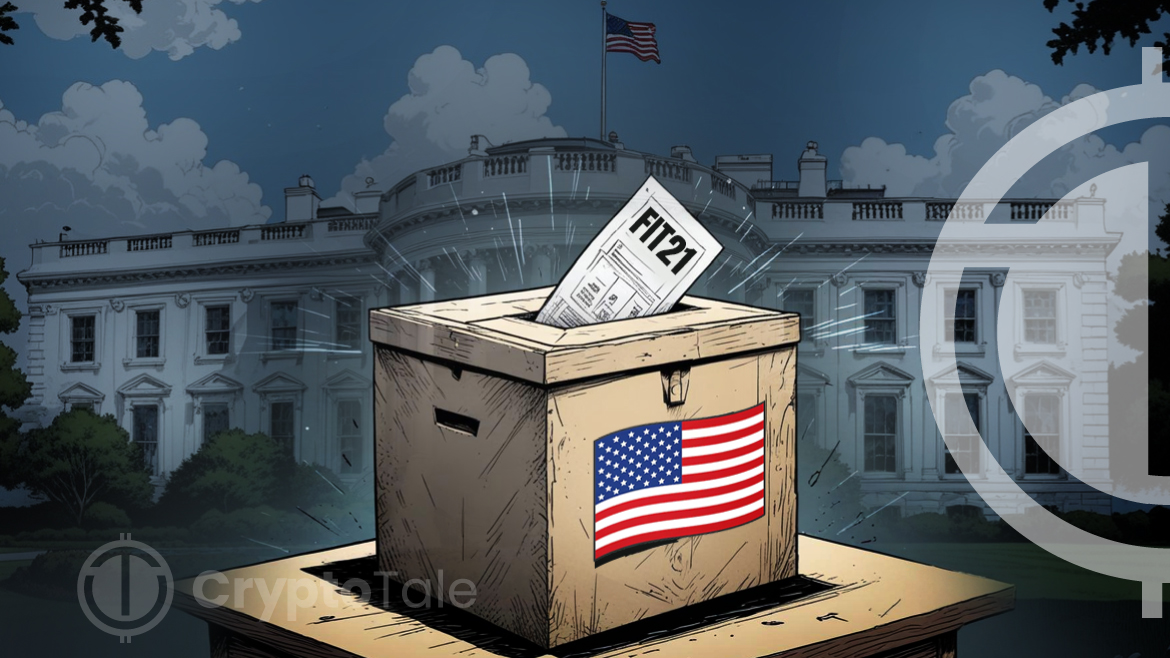- FIT21 Act aims to classify most cryptocurrencies as commodities for regulatory clarity.
- Congressman McHenry urges swift Senate action on FIT21 before elections.
- The House passed FIT21 with strong bipartisan support: 71 Democrats and 208 Republicans.
In a recent interview with Bloomberg’s Balance of Power, Congressman Patrick McHenry, the current Chair of the Financial Services Committee, passionately discussed the importance of passing the Financial Innovation and Technology for the 21st Century Act (FIT21) before the impending presidential elections. The bill, which designates most cryptocurrencies as commodities, aims to bring much-needed regulatory clarity to the crypto industry.
Congressman McHenry highlighted the bill’s successful passage in the House with a significant bipartisan majority of 71 Democrats and 208 Republicans supporting it. This wide margin, he argued, should serve as a “wake-up call” for the Senate to act swiftly on the legislation.
The Congressman emphasized the necessity of the Senate focusing on policy over politics, especially in an election year, to achieve meaningful legislative outcomes. He stated,
“For us to pass that important bill, FIT21, with a two-thirds vote of the House of Representatives in these divided times, is a major statement.”
The FIT21 Act delineates regulatory authority between the Commodity Futures Trading Commission (CFTC) and the Securities and Exchange Commission (SEC), aiming to classify most cryptocurrencies as commodities. This classification would primarily place them under the jurisdiction of the CFTC, viewed by many in the crypto industry as a more favorable regulator compared to the SEC, which retains authority over cryptocurrencies that are not sufficiently decentralized.
SEC Chair Gary Gensler Criticizes FIT21 Act, Citing Risks to Investor ProtectionDespite the optimism following the House vote, McHenry shared that the real challenge lies ahead in the Senate. He plans to seek clarity and rally support once the Senate session resumes, underscoring the urgency of passing the bill before the election season fully takes over the legislative agenda.
Aside from the FIT21 Act, McHenry has been a staunch advocate for various financial policies, including data privacy and capital formation. As he approaches retirement at the end of his term, he expressed a strong desire to see these critical issues addressed, reflecting on his tenure and the complex dynamics of policymaking in Washington






